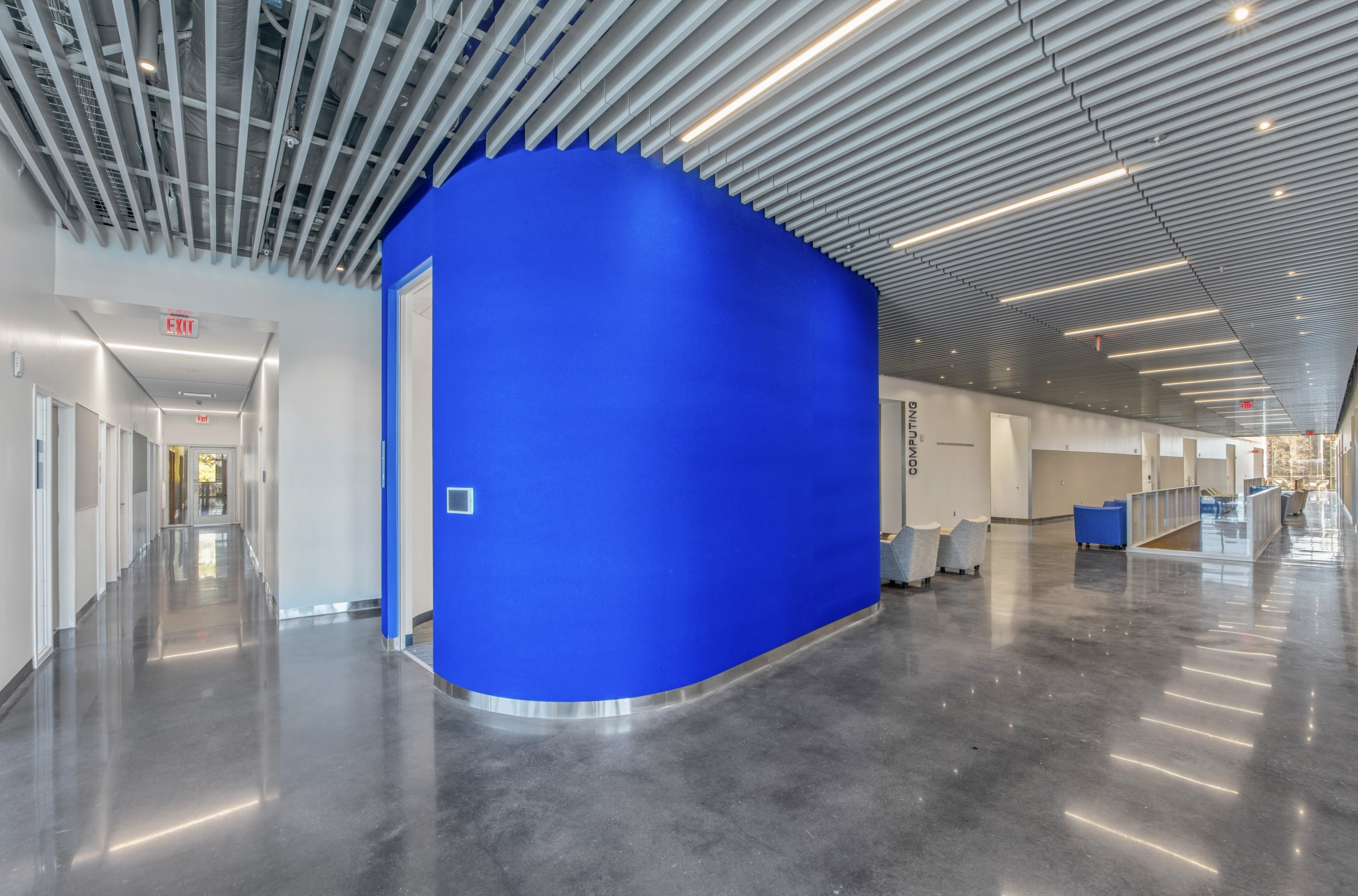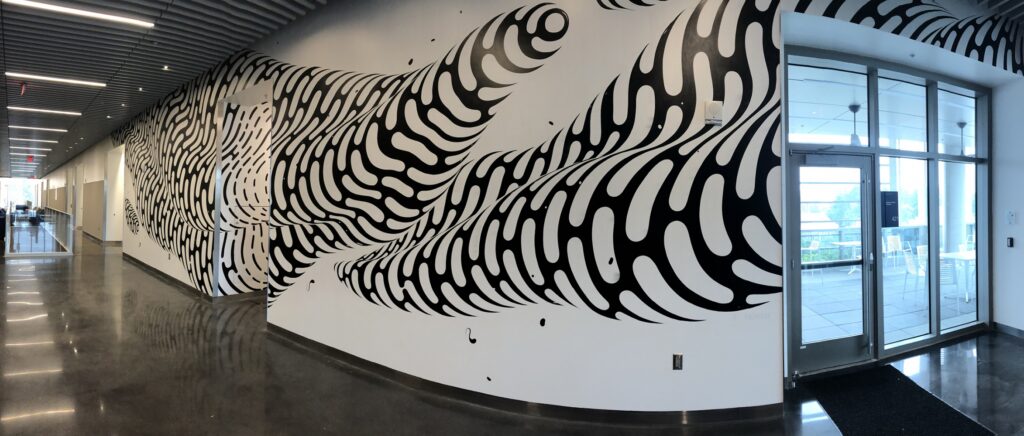Welcome to the Computing Neighborhood
The fourth floor of Duke Engineering's new Wilkinson Building houses the Advanced Computing and Intelligent Systems research neighborhood. Learn more about the engineers who now call this space home

The new 150,000-square-foot Wilkinson Building sits at the intersection of the Schools of Engineering, Medicine and Arts & Sciences. The Wilkinson Building’s research “neighborhoods” bring together faculty with diverse specialties and areas of expertise, facilitating collaboration and cooperation.
The fourth floor is home to the Advanced Computing and Intelligent Systems neighborhood, where faculty with electrical and computer engineering, computer science, and mechanical engineering affiliations come together to develop solutions to challenges in AI and machine learning, robotics, cybersecurity and beyond.
Faculty Labs
411: Tingjun Chen
Tingjun Chen seeks to improve data rates employing emerging physical-layer technologies and achieve the highest possible data rates for ultra-low-power IoT devices. (ECE)
423: John Board
John Board is an expert in cybersecurity and serves as Duke University’s associate chief information officer. His research interests extend to high performance scientific computing and simulation, novel computer architectures, cluster computing and parallel processing, and ubiquitous computing. (ECE/CS)
427: Neil Gong
Neil Gong works at the crossroads of security, privacy, and machine learning, leveraging machine learning techniques to study security and privacy, and also building secure and privacy-preserving machine learning algorithms. (ECE/CS)
427: Daniel Sorin
Daniel Sorin designs computer architectures and memory systems for multicore processors, with the aim of improving reliability, lifetime, and vulnerability to transient errors. (ECE/CS)
427: Kishor Trivedi
Kishor Trivedi is an internationally recognized expert in the domain of reliability. Currently, he is conducting experimental research in software reliability during operation, researching software fault tolerance through environmental diversity. (ECE/CS)
431: Yiran Chen
Yiran Chen leads the new NSF-funded Athena center, advancing next-generation mobile networks in support of edge computing. Chen also co-directs the Center for Computational Evolutionary Intelligence. (ECE/CS)
431: Jeffrey Krolik
Jeffrey Krolik develops algorithms that explicitly account for and exploit multipath in order to significantly improve system performance. He is the managing director of the NSF-funded Athena center. (ECE)
431: Hai Li
Hai Li’s research encompasses many aspects of AI, including machine learning acceleration and trustworthiness, and extending to data privacy in healthcare applications. Li co-directs the Center for Computational Evolutionary Intelligence. (ECE/CS)
432: Vahid Tarokh
Vahid Tarokh invents new mathematical methodologies and demonstrates these in projects focused on representation, modeling, inference and prediction from data. (ECE/Mathematics)
435: Miroslav Pajic
Miroslav Pajic’s research focuses on developing and securing cyber-physical systems with varying levels of autonomy and human interaction. (ECE/CS)
437: Michael Zavlanos
Michael Zavlanos develops new, AI-enabled controls for autonomous systems that operate in uncertain, unstructured and unpredictable environments. (MEMS/ECE/CS)
443: Maria Gorlatova
Maria Gorlatova focuses on adding connectivity and intelligence to every device big and small — the cross-disciplinary area known as the “Internet of Things.” She has particular interest in fog and edge computing. (ECE/CS)







